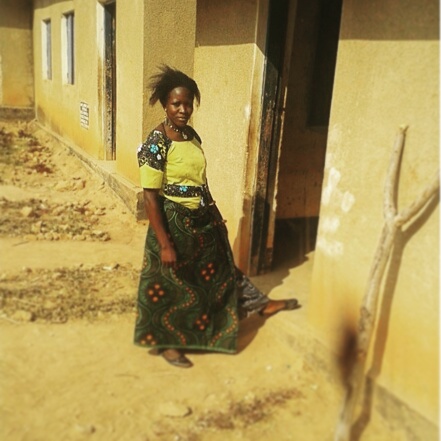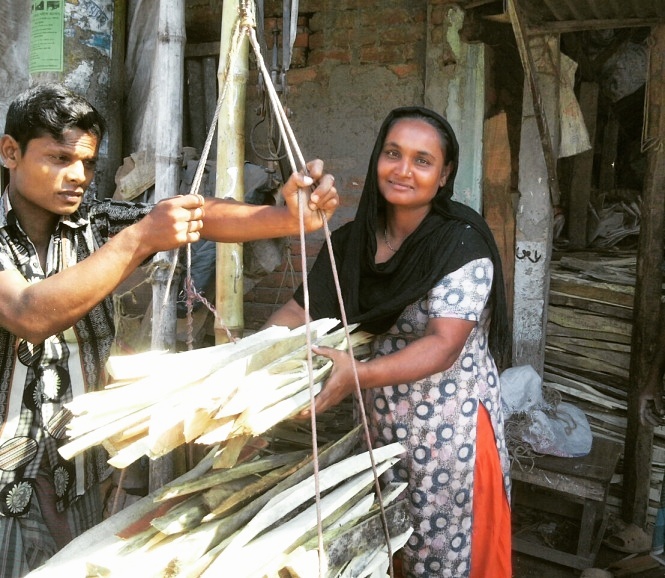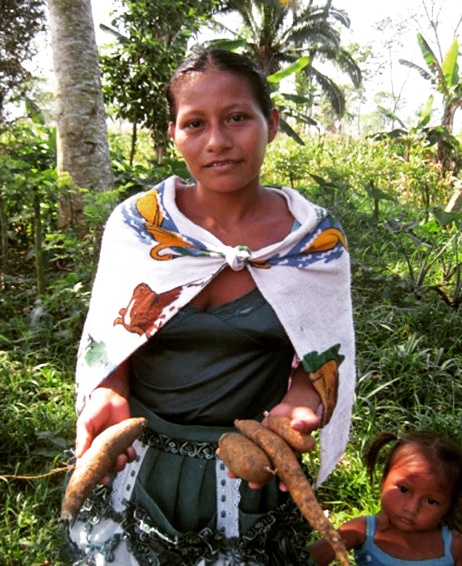International Women’s Day was first officially celebrated by the United Nations in 1975 but has roots going back more than a century. Governments, businesses, and civil society together take a day to recognize the important political, social, and economic role that women play globally and to advocate for gender equality.
Follow us on our website, Facebook, Twitter, and Instagram to hear stories of change and transformation in the lives of women around the world.
For more information, visit: www.internationalwomensday.com and www.unwomen.org/en/news/in-focus/international-womens-day.
March 13th
Ben Youn
Though Ben Youn and her husband worked hard growing rice, raising animals, and sewing clothes to sell in the market, they still struggled to support their five children financially in school. Living in the Prey Veng province of Cambodia, their family could never pull together enough money to expand their existing businesses.
Through World Renew partner New Light of Unity (LNU), Ben Youn was able to join a savings group and take out small loans to expand her sewing business. Through these loans and business training, she doubled the income she earned from sewing.
In her community, children often have to drop out of school when they’ve finished primary school, because it’s a longer commute to the secondary school. However, when Ben Youn’s oldest daughter passed her exam to enter secondary school, Ben Youn was able to take her profits from sewing and buy her daughter a motorbike so she could continue attending school.
March 12th
Advera
Life in Tanzania is difficult for adults who are illiterate. Advera, whose mother didn’t have the money to send her to school when she was young, experienced this in various ways: she couldn’t sign official documents, merchants often cheated her at the market, and she was unable to be considered for leadership in her church or community.
Advera and her husband heard about an adult education class that their diocese and World Renew were planning to establish in the community, and they decided Advera should go. She began learning to read Swahili and studying the fundamentals of math, along with fifteen other students.
After joining the class in March 2014, Advera is now able to slowly read and write, everything from the Bible to road signs to text messages. She’s encouraging other adults in her community to join the literacy class so they’re able to communicate well and to and monitor the progress that their children are making in school.
March 11th
Salma
After learning about the importance of savings from a friend, Salma decided to join a savings and loan group. The 32-year-old wife and mother from Bangladesh started a small business with the loan she received from the group, and then received further training on business planning and management. Salma noticed that every family in her community used firewood as fuel for cooking, so she decided to start a business selling firewood to meet that demand.
Her business did indeed meet a need in the community, and Salma is experiencing continued success and profitability. She is able to help provide for her family and to send both of her sons to school, and she has become a confident businesswoman.
Initially, Salma believed that it was the husband’s responsibility to manage his family, but now she and her husband make decisions together. He respects her work and her opinions, and they work together to take care of their children. Salma’s hope is that every woman is given the chance to have a voice in her family and in her community, like she does now.
March 10th
Marta
Marta is a young woman from a rural community in Guatemala. When she was still a teenager, she got married and had three children, but her husband disappeared and Marta was left on her own to provide for her family. Without the support of her father, she had difficulty earning enough money for herself and her children to live on.
Three years ago, one of World Renew’s partner organizations, the Integral Development Association Polochic, began offering training on sustainable organic agriculture in Marta’s community. At first, Marta had trouble because she didn’t have any of her own land to cultivate, but she convinced her father to give her a small plot of the swamp land he owned. She worked hard to restore the land and started planting and harvesting crops, beginning to generate income for herself and her children.
Both her parents are illiterate, and Marta is determined to continue growing crops so that her children can keep attending school. She has overcome the criticism of her community and is thankful to have realized that women can work in agriculture to support their families.
March 9th
Fanta
Fanta is a peer educator in the Adolescent Health Program in her community in Senegal, a role that she’s had for the past six years. This year, she is teaching 40 girls about health and sanitation, the empowerment of having dreams, and ways boys and girls can have healthy friendships, among other things. She says she continues to learn along with the program participants each year.
When asked what one of her dreams was, Fanta replied that she hopes to continue teaching in the program forever, because it gives girls a voice in their own lives and a say in their futures. They learn about sexual violence, early pregnancy, and family planning so that they have the resources to speak for themselves in the context of marriage and family.
Though gender roles are often rigid in Senegalese society, Fanta is engaged to be married and plans to use the lessons she’s been teaching in the program in her marriage. She wants to go out and contribute to her family and community and to continue reaching out and educating those around her, reminding women that they have a voice.
March 8th
Anowara
Anowara has known how to sew for years, but didn’t have the confidence to start her own business until she joined the Meghla women’s group. The women in her group received training on managing savings and loans, justice, and community development issues, and then Anowara had the opportunity to join a business forum, where she learned about business planning and management.
At 54, Anowara recently started her own tailoring business. After realizing how profitable it was, she began training other women at her shop, free of charge, so they could learn tailoring skills as well. So far, at least a dozen women from her community have participated in her vocational training program. Some plan to open their own shops, while others hope to take in work at their homes.
Knowing the positive impact that a steady income can have for a family, Anowara hopes to continue training other women so that they can become financially stable. She dreams that, one day in her community, every family will be able to send their children to school, overall health and access to treatment will improve, and poverty will be eliminated.






